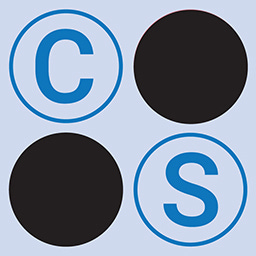Chegg CEO Out As Company Continues to Flatline
Plus, everyone just relax. Elon Musk says cheating with AI is just fine. Plus, UK regulator quizzes auditors and accountants on exam cheating with AI. Plus, class notes.
Issue 291
Subscribe below to join 3,841 other smart people who get “The Cheat Sheet.” New Issues every Tuesday and Thursday.
If you enjoy “The Cheat Sheet,” please consider joining the 18 amazing people who are chipping in a few bucks via Patreon. Or joining the 38 outstanding citizens who are now paid subscribers. Paid subscriptions start at $8 a month. Thank you!
Chegg Stock Drops Again. Amid Continued Shrinkage, CEO Departs
Cheating company Chegg announced its earnings in a scripted phone announcement and press release this week — unveiling yet another quarter of declining revenue and customers.
As a result, the stock dropped. Again. When the market opened this morning, you could buy Chegg for less than $6 a share, down 20% from yesterday and down from its high of $113 a share in February 2021. That’s a drop of 95%.
In completely unrelated news, Chegg also announced that its CEO, Dan Rosensweig, will step aside in favor of long-time Chegg executive Nathan Schultz, who will be named President and CEO.
In the earnings report, Rosensweig said of Schultz:
Nathan has been core to Chegg’s success from our earliest days
I do not think that is the compliment Rosensweig thinks it is.
Anyway, the numbers reported by Chegg for the first quarter of 2024 are:
Total Net Revenues of $174.4 million, a decrease of 7% year-over-year
Subscription Services Revenues of $154.1 million, a decrease of 9% year-over-year
Net Loss was $1.4 million
4.7 million Subscription Services subscribers, a decrease of 8% year-over-year
So — decrease, decrease, loss, decrease. Chegg is losing money and customers. That’s not a good thing, if you’re Chegg. It is a good thing if you care about academic integrity.
Note that 88% of Chegg’s revenue came from their “subscription services,” which are the company’s primary cheating products such as the answer-on-demand service. In the recent past, this share of the company’s revenue was comfortably above 90%. The proportion is shrinking because most of Chegg’s losses came from a decline in these services.
Also note that, even though the numbers are declining, Chegg still has 4.7 million people paying them every month for cheating services, a gargantuan number that moved nearly $175 million from the pockets of students into the vaults of investors — in just one 90-day period.
Not to toot my own horn too obnoxiously, but this humiliating collapse of Chegg is something I predicted in November 2021. And many times since (see Issue 206).
But back to Rosensweig. His exit is conspicuous, though there is no hint in any of the official communication that his departure was anything but voluntary. Still, guiding a company from a share price of $113 to less than $6 may not be something he wants too far up in his resume.
For new boss Schultz, I feel terrible. Like WW II General Friedrich Paulus, past the point of no return is a creepy time for a promotion.
As for Chegg’s future, I think it’s not great. It will continue to shrink and bleed cash until it gets small enough that one of the big AI companies will buy it for parts. Chegg’s data has value. And in an era where turning data into AI content with the appearance of personality has even more value, that’s likely. With millions of subscribers and a brand that means lazy shortcut, Chegg and OpenAI, for example, are a decent match.
Although if I worked at Chegg, I’d be sure my resume was up to date. The exits are clearly marked.
Investor Opines that Students Cheating with AI “Are on the Right Track.” Elon Musk Agrees.
I saw this a few days ago and was going to share it but since Elon Musk took over Twitter, and since I quit Twitter, finding things on the platform has been challenging. Nothing on the Twitter/X seems to work as you think it should.
Anyway, Benzinga has the news — though be aware that Benzinga is not really a news site — about what some rich investor type tweeted about academic cheating with AI and what another rich guy thinks about that thought. And, yes, it really is that silly.
This is the first paragraph from the Benzinga story:
Deepwater Asset Management managing partner Gene Munster is astonished at the widespread use of artificial intelligence among high school students for cheating but had his take on the issue that fetched a nod from Tesla and SpaceX CEO Elon Musk.
Astonishing lack of coherent grammar aside, that is what happened. Two dudes with no formal training or experience in academics or academic integrity shared their half-backed ideas and — poof! — it’s news.
From the story:
[Munster] then shared his insights after talking to one high school student and it included the usage of AI in writing papers which Munster deemed “out of control,” lack of concerns surrounding AI hallucinations, reduced time spent on homework, students finding workarounds to use platforms like ChatGPT and different perception toward what can be called cheating.
Yes. He talked to one high school student. Expert badge unlocked.
Though, in fairness, I think he’s right — use of AI tools to cheat actual academic investment is out of control. But he gets no special credit for observing the obvious.
But Munster, via Benzinga, goes on:
However, despite this, Munster believes that students using these tools are on the right track. He argues that embracing AI is essential for future job market success, not just for information workers but also for skilled labor.
“Initially I was shocked at hearing how widespread generative AI is being used in school. After reflecting on it, I landed on the view that the students using these tools are on the right track,” he said.
I was shocked but, you know what, after thinking about this thing that never occurred to me before two minutes ago, I think it’s good. Cheat away, everyone. Because, you know, jobs and all that:
“You have to embrace these tools to have a seat in the job market down the road. And it won’t be just information workers, skilled labor will undoubtedly need to leverage AI to stay relevant.”
Uh-huh.
Maybe if he’d spent another 60 seconds thinking on this, he may have concluded that students learning how to organize information and communicate clearly and convincingly, and apply effort to difficult tasks, is important. Though honestly, probably not.
The reason these deep-thought things from Munster got attention is that Musk — another recognized leader in the field of education and integrity — responded with the childish, golf buddy bro-nod:
It’s high debate at the pickleball court.
But the take-away is clear — two rich guys think cheating is out of control but it’s cool because, technology. If there’s a better microcosm of what’s wrong with our education discourse and seriousness, I cannot pinpoint it.
UK Regular Asks Big Accounting Firms How They’re Stopping AI Cheating
This week, a regulating body in the UK asked major accounting and auditing firms about their efforts to stop exam cheating with AI.
Here is the lead from the story:
The Big Four auditors have been asked to explain what measures they are taking to prevent professionals from using ChatGPT and other AI tools to cheat on exams.
Spoiler alert: not many.
Here you go:
The UK accounting watchdog said that it continues to “work closely” with these organisations to ensure they have robust systems in place to detect, monitor and combat any cheating which could undermine the quality of audits.
It is understood KPMG UK now warns employees before and during mandatory audit training that cheating using AI is not tolerated and rule-breakers are at risk of losing their jobs.
Deloitte UK also tells students that using AI tools during exams is not permitted and will be considered gross misconduct.
The companies warn and tell students that cheating with AI is not permitted. Strong.
Though a different regulator:
The Institute of Chartered Accountants in England and Wales (ICAEW), said it proactively works with regulators to monitor exam malpractice risks on an ongoing basis.
The 144-year old organisation, which has more than 208,000 members, said that audit exams are completed in a fully-invigilated environment meaning candidates could not cheat using AI chatbots without being detected.
An ICAEW spokesman added: “However, we are constantly monitoring the use of AI and the risk that it poses.”
The use of AI and the risk it poses. In the workplace. I wonder if Munster and Musk are paying attention.
I’m just kidding.
They are not.
The inquiry from the government comes against the backdrop of exam cheating scandals and more than $150 million in fines for accounting and auditing firms over the past few years.
I’ve shared many, though not nearly all of them. With that in mind, I’ll leave you with this, from about two weeks ago:
KPMG slapped with record $38m fine for exam cheating
Class Notes:
I was honored to be in Arizona last week to speak with allies and partners in academic integrity at ProctorioX, an annual conclave sponsored by Proctorio. It was great and, if learning more about exam security and integrity is on your agenda, keep your eyes open for ProctorioX next year.
Also, The Cheat Sheet picked up another paid subscriber in recent days. Thank you.
There is no difference between a paid subscriber and any other, although I do appreciate the support. And, as previously promised, when paid subscribers leave notes with their sign-ups, I am happy to share them. The newest, from AR:
I'm the director of an office that oversees academic integrity, so I want/need to be well-informed. It's so wonderfully convenient to have access to this information and to have it delivered to my inbox. Thank you for what you're doing.
No, AR, thank you. I am delighted I can play some small role in your efforts.



